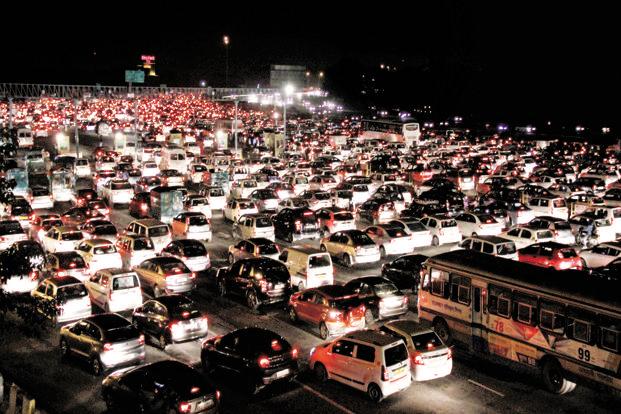If you are reading this while you are stuck in traffic, here’s what you can do.
Be patient
One of the stress triggers is impatience. Having to wait for the traffic to move or dealing with the mistakes of other motorists on the road can lead to resentment, anger, road rage, all culminating in stress, a deadly disease, says Samir Parikh, director, department of mental health and behavioural sciences at the Fortis Memorial Research Institute in Gurgaon, adjoining Delhi.
The first step to counter this is to accept traffic jams as something beyond your control. “Ignore it, wait patiently to get out of it, or listen to music. If you’re upset, talk to someone, do some breathing exercises, distract yourself to stay calm and relaxed,” he says. Remind yourself that you’re not the only one stuck.
Connect and meditate
Of course, we won’t suggest this in case you’re the one who’s driving, but if you’re a passenger, close your eyes, take a deep breath and take this rare time to connect with yourself, says Vesna Pericevic Jacob, founder of Vesna’s Alta Celo, a wellness studio in New Delhi. “As your mind relaxes through meditation, your blood pressure stabilizes and you feel at one with the universe.”
If you’ve never started on meditation, download Calm (Calm.com) to learn how to, or Headspace (Headspace.com) for creative ideas on meditation.
Ensure a good posture
If you’re the one driving, a good driving posture can help relieve shoulder and neck stiffness or pain in the knee or ankle, says Jacob. “Being constantly in pain is a sure way of getting more stressed; instead, pay attention to your posture while you’re driving.”
Keep the base of the car seat on a par with your shin bone, slightly recline the back of your seat, adjust the seat belt so that it lies across the top of your shoulder and doesn’t rub against your neck or upper arm. “The steering wheel should be at a comfortable distance, with your elbows slightly bent,” she adds.
Keep yourself hydrated and fed
Being hungry, especially when travelling with children or the elderly, doesn’t help. Keep some dry fruits, water and biscuits in your car at all times, suggests Dr Sahni.
Learn something new
You can distract yourself by turning the car into a productivity zone, suggests Jacob. “Listen to seminars, lectures, motivational speeches and other material that can help you become more valuable as a worker and as a human being.” Head to Openculture (Openculture.com), a vast resource of free audio books, podcasts and movies that you can download and view. Use the Offline feature in YouTube.com or read articles offline on Pocket (Getpocket.com). How about learning a new language? Just download Duolingo (Duolingo.com).
Move as much as you can
Wiggle, stretch, flex—your No.1 goal should be to move as much as you can, says Dr Chadha. Try isometric training inspired by the legendary Bruce Lee, where you can work your muscles without moving your body, says Jacob. “Push your back into the seat, place the hands on the wheel, and gently push yourself until you feel your muscles stretch,” she adds. Engage the core and slowly bend your head so that your shoulder blades lose contact with the seat. Return to the starting position; repeat this three times.
Get someone else to drive
Traffic snarls can lead to increased incidents of road rage, during which the heart rate increases, breathing intensifies and blood pressure shoots up, says Dr Chadha. “If you’re a stressed driver, don’t drive. Hire a driver or consider public transport.”
A study by the University of East Anglia, UK, published in the Preventive Medicine journal in 2014, found that people who drove had more trouble concentrating than walkers or cyclists. “People who walk are less stressed. Even public transport is a better alternative as it requires you to walk up and down subway stairs, stand on the Metro train or walk to the bus stop,” says Dr Chadha.
Consider a portable toilet
Sitting in a fixed position for a long time, controlling your bladder, can be quite hard on the liver, especially for elderly people. “In Jakarta, getting stuck in a traffic jam for 3-4 hours is very common, so people there carry portable toilets in cars,” says Dr Sahni. Perhaps it’s time someone started selling one for our city roads too.
Complete article at livemint.com

